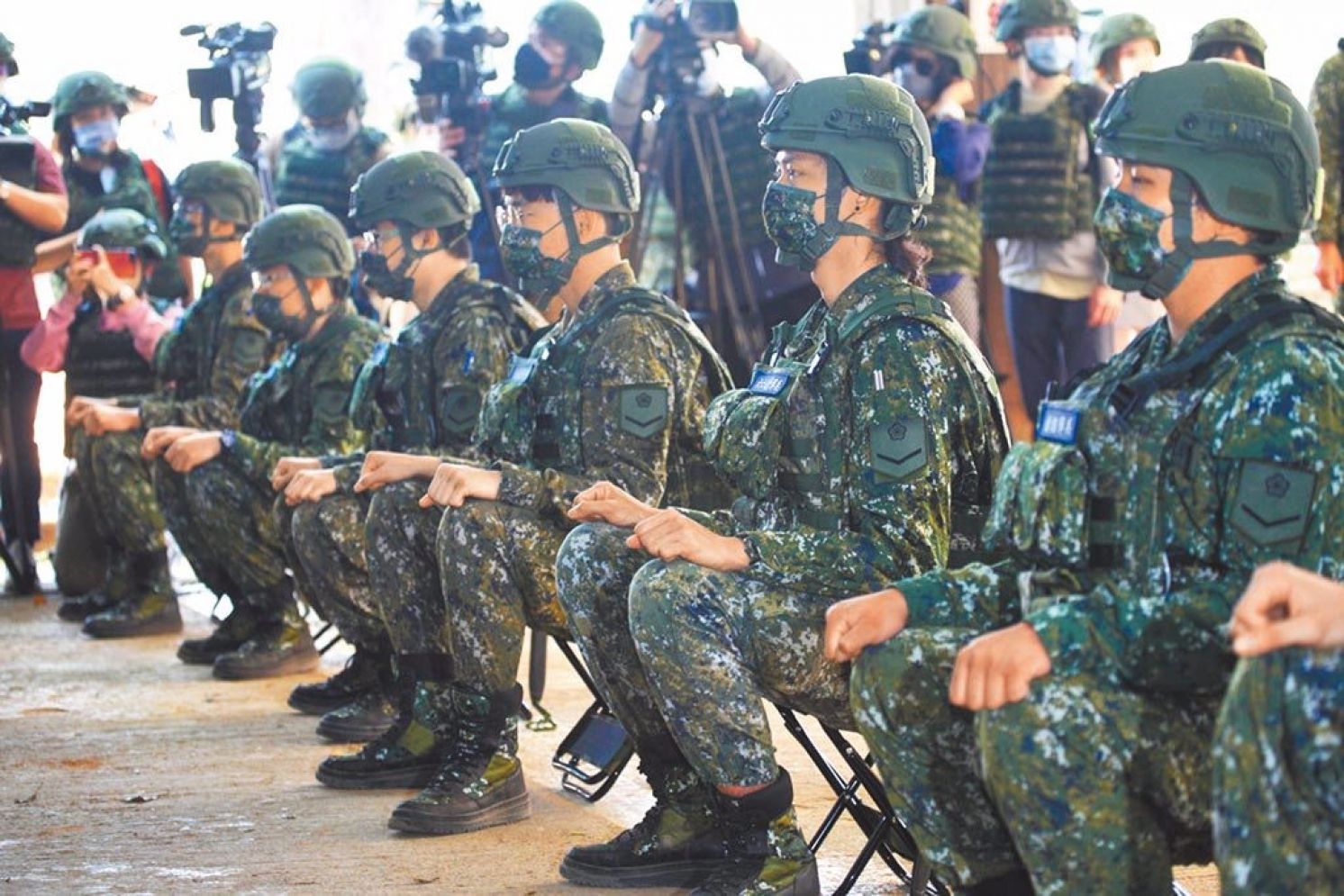
This Week in Taiwan 0910-0916
September 11: According to the budget document of the Ministry of National Defense (MND) for next year, the budgeted number of volunteer personnel has dropped sharply by 5,187 compared with the figure this year, which is equivalent to a reduction of nearly 10 battalions of manpower. Expert analysis shows that 99 percent of the reduced posts are grass-roots non-commissioned officers and soldiers. The manpower available for primary combat units has declined, seriously affecting combat efficacy. The MND may distribute a considerable proportion of conscripts to primary combat units in order to fill their manpower gap.
September 12: The Central Election Commission officially announced the election for the 16th-term president and vice president and members of the 11th Legislative Yuan. Voting will take place on January 13, 2024. The number of voters is approximately 19.5 million. Terry Gou, founder of Hon Hai Precision Industry Company (Foxconn) who has announced his bid for the presidency, must obtain at least 289,677 signatures to officially register as a candidate.
Gou announced seasoned actress Tammy Lai as his running mate. However, because Lai has dual nationality, she must obtain a certificate of renunciation of her U.S. citizenship before the registration deadline on November 24 before the pair may register to run.
September 12: Mainland China released a document supporting in Fujian Province the construction of a demonstration zone for cross-strait integration and development, stating that it will give full play to Fujian's unique advantages and pioneering role in Taiwan and construct a "three-dimensional comprehensive cross-strait channel hub." According to the document, the proposed demonstration zone will strive to achieve equal convenience in handling applications for mainland identity cards and Taiwan compatriot resident permits in Fujian. For Kinmen and Matsu, it aims to accelerate the promotion of electricity, gas, and bridge connections with Kinmen and support Kinmen in sharing Xiamen's new airport. Cong Liang, deputy director of the mainland's National Development and Reform Commission, also mentioned at a press conference that he hopes to achieve cross-strait high-speed rail connection as soon as possible and proposed inter-connection of energy resources.
September 12: According to Reuters, Japan's Ministry of Defense has assigned a resident civilian official to Taiwan. This move will enhance Taiwan-Japan security relations but may anger mainland China.
Japan's Ministry of Defense has so far dispatched retired Self-Defense Forces (SDF) personnel to Taiwan. According to relevant personnel, although there have been proposals to station active-duty SDF personnel before, Japan ultimately decided to station civilian officials.
September 14: Kuomintang (KMT) presidential candidate Hou Yu-ih set off for the United States and will visit New York, New Jersey, Washington, and San Francisco. He will meet with members of Congress, visit the American Institute in Taiwan Washington Headquarters, and deliver speeches at four think tanks.
During a discussion with the Council on Foreign Relations, Hou expressed his hope that the United States understands his ability to build a Taiwan that can put the world at ease. Taiwan will not become a troublemaker but will play the role of a competent peace promoter and risk reducer. He does not harbor unrealistic expectations of Beijing's intentions.
In an interview with the Financial Times, Hou allegedly indicated that he would ask the Biden administration to "make clear" the U.S. commitment to defending Taiwan. However, Hou's office has clarified and denied making this comment.
September 14: According to the Wall Street Journal, due to Egypt's failure to make progress on human rights and other issues, the United States plans to redirect some of the foreign military financing originally allocated to Egypt to Taiwan, amounting to $55 million.
On the other hand, aircraft and warships of the People's Liberation Army (PLA) have been going out to sea in large numbers recently. On September 13, the MND detected 68 sorties of PLA aircraft, 40 of which crossed the median line of the Taiwan Strait, breaking the record of this year. It is believed that PLA aircraft and warships are conducting joint sea-air exercises in the Western Pacific in coordination with the passage of the aircraft carrier Shandong through the Bashi Channel.
September 15: The U.S. Senate Committee on Finance unanimously passed a bill to avoid double taxation between Taiwan and the United States, the first tax agreement between the two. The proposed agreement will benefit Taiwanese companies operating in the United States such as the Taiwan Semiconductor Manufacturing Company (TSMC), as it can reduce its profit withholding rate by two-thirds if it meets certain conditions. Democratic Senator Ron Wyden, chairman of the Senate Finance Committee, stated that this bill strengthens the U.S.-Taiwan partnership and has received widespread support. Legislation may be realized within a few months.
September 15: The food safety controversy surrounding imported eggs has escalated due to issues including incorrect labeling of expiration dates. However, the Ministry of Agriculture has not disclosed where eggs are distributed, and requests for information by legislators and local governments have been declined. Mayor Lu Shiow-yen of Taichung stated that she will coordinate with other local governments to investigate on their own.